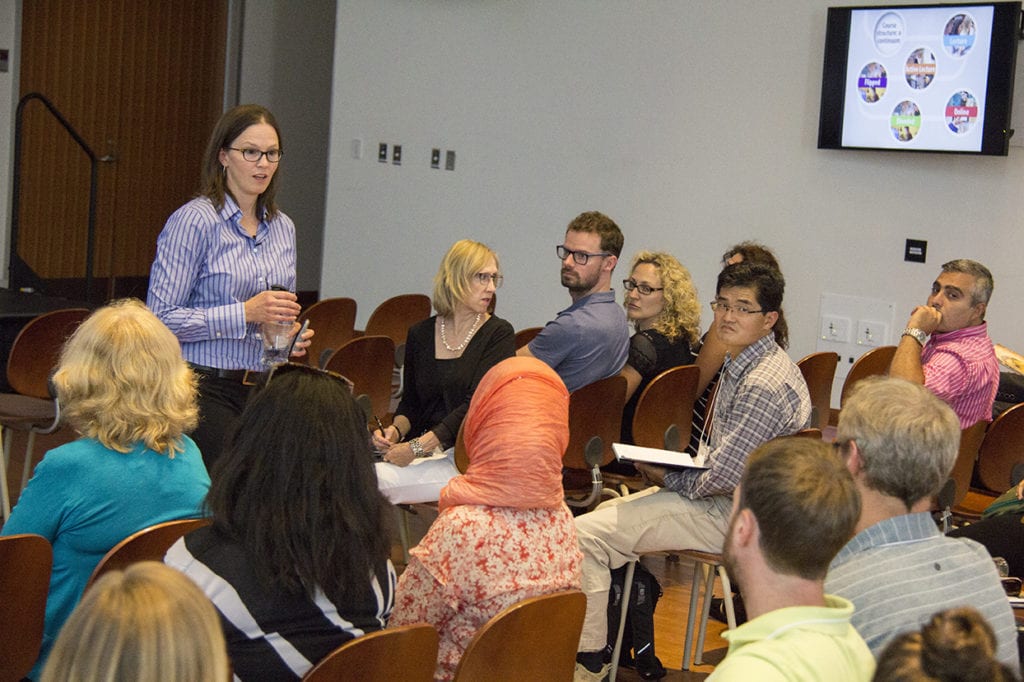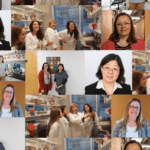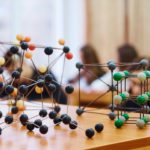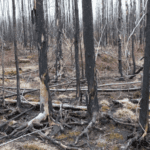Canadian Science Publishing is pleased to welcome Dr. Alison Flynn as the new Associate Editor of the Canadian Journal of Chemistry. Dr. Flynn is a current professor of chemistry education at the University of Ottawa, and with her induction as a new Associate Editor, the Canadian Journal of Chemistry has also expanded its scope to include chemistry education research.
What got you interested in chemistry in the first place?
I thought it was really interesting that we could look at something at the macroscopic level and drill down to the molecular level to see this amazing scope of molecules and see how they interact. I was fascinated by how we could predict and understand what’s going on in all these reactions. I also really loved solving puzzles in chemistry.
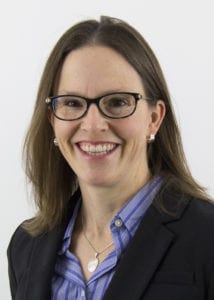 What’s your academic background?
What’s your academic background?
I did my undergrad at Queens University. I started out in chemistry thinking “well, I’m not really sure what I want to do in university, but this seems to be the thing that I seem to be good at,” and I enjoyed doing it, so I decided to continue.
When I was studying in my undergraduate degree I really enjoyed all the puzzles and exploring different activities, so I moved on to do my PhD in at the University of Ottawa studying organic chemistry.
After finishing my PhD I was deciding between post doc versus other career choices, and the University of Ottawa at the time opened up an experimental science position. I realized during my PhD how much I liked being a teaching assistant, and I thought this would be a really great opportunity to teach a subject I love and work with students all the time. That was in 2007, and in 2015, the University of Ottawa created a chemistry education research position. I applied and was recruited, and that’s where I’ve been since then.
Can you describe what your current research focuses on?
The chemistry education part of my research part focuses on how students are learning concepts and bettering their expertise, usually in organic chemistry. We might look at how we structure the curriculum or learning environment differently or how we look at different assessments. Students are being asked to go more deeply in terms of the way they’re connecting information or being asked to explain why they’re doing something.
As we see different things in our teaching approaches then we use different research methods to try to figure out what’s going on. We might use qualitative research methods to figure out what students know and how to connect that knowledge.
After you do some qualitative research, you might use quantitative methods and statistical analyses to measure changes in learning—maybe students’ attitudes are changing, what’s happening with course retention, etc. And then we might go back to qualitative research because the numbers don’t give us insight into why things are changing. If you really want to know why then you go back and forth.
As we’re doing those things we might figure there’s a gap in students’ learning. We might develop a number of online learning tools and resources that are open access for students and professors.
What’s a research project that you’re really interested in right now?
One of the areas that we look at is called organic chemistry’s language. We can see chemistry with our eyes—visible light or water boiling for example—but to really understand what’s happening you need to go down to the molecular level and see what’s going on with the molecules and how they`re interacting. In order to understand at the molecular level we have to use instruments, representations, and symbolism. Those representations become chemistry’s language.
It becomes really difficult for learners to not only figure out what we do with the representations but also what that means for the molecule. They then need to extend that to predictions about how and why those molecules interact and then connect it all back to the stuff that we see at the macroscopic level.
We’re finding some really neat things about that. With different approaches students are really thinking deeply about what’s going on in the reaction, and they can use the symbolism to describe the process that’s happening. They’re not taking guesses at what the reaction would give but are analyzing it in a much deeper, molecular level, linking to the knowledge they had before and thinking forward.
Can you give an example of a change in chemistry education that your research has looked at?
One of the main changes that colleagues and I made a few years ago now was to change the curriculum in organic chemistry. We used to teach functional group organization where there was a lot about organic reaction mechanisms and why things are happening. But the challenge was that functional groups can undergo many, many types of reactions. That can be very confusing for students, and we found that they were just trying to memorize all the different possibilities rather than understanding the principles. So we changed the curriculum to a much more patterned and principled kind of approach. We still have the mechanisms that are happening, but they are now organized by the predominant type of reaction mechanism and in a gradient of difficulty.


